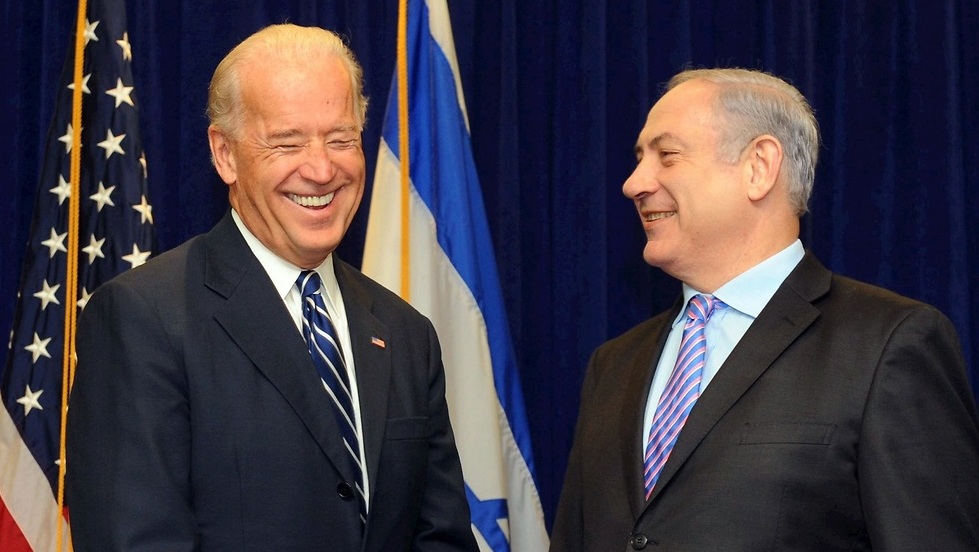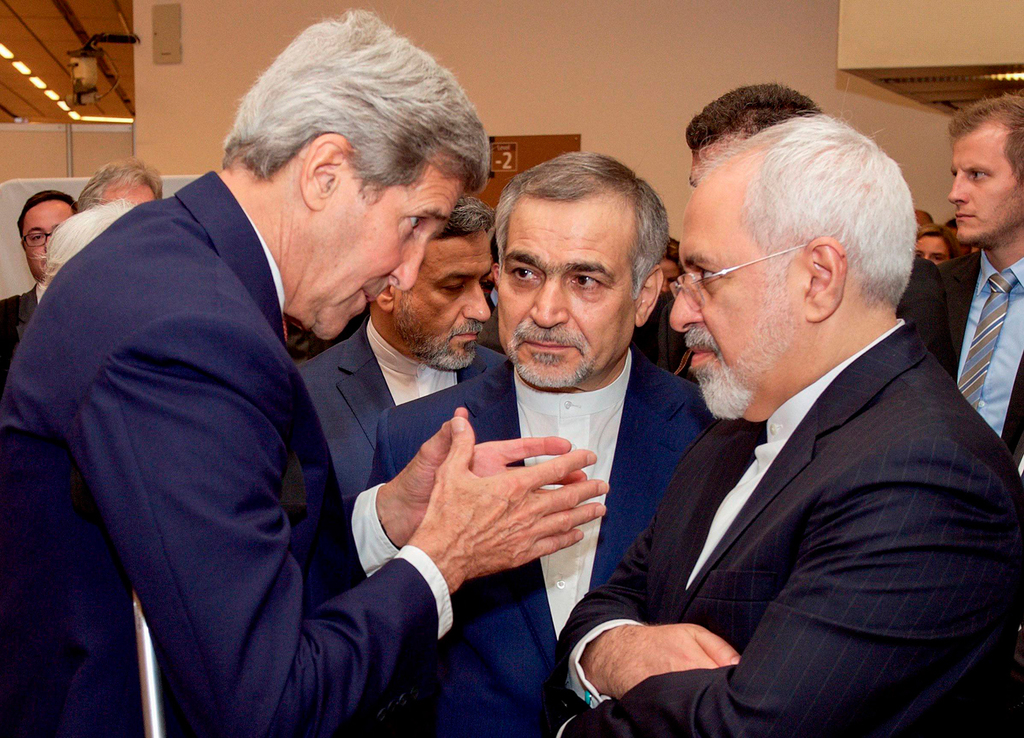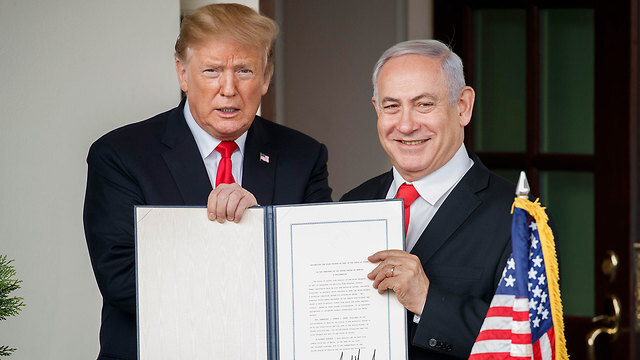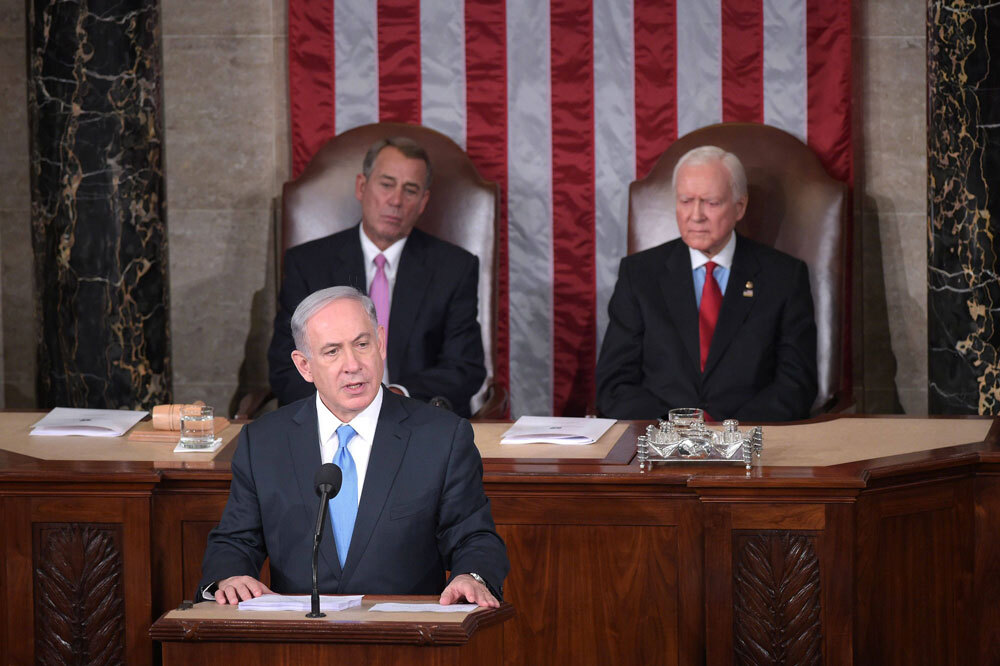Getting your Trinity Audio player ready...
U.S. President Joe Biden has been slow to call Prime Minister Benjamin Netanyahu since taking office last month in no small part because of the Israeli leader's controversial speech on Iran to Congress in 2015, according to former Military Intelligence chief Amos Yadlin.
In the speech, Netanyahu publicly and emphatically slammed the nuclear agreement with Iran that had been negotiated internationally under the leadership of President Barack Obama's administration. Joe Biden was Obama's vice president for eight years and the two are openly very close.
Yadlin, who is today the executive director of Tel Aviv University's Institute for National Security Studies and an expert on Israel-U.S. relations, says this deafening lack of communication is in sharp contrast to the relationship Netanyahu had with former president Donald Trump, who called the prime minister just three days after entering the White House in January 2017.
"Netanyahu has not been popular with the Democratic Party since his speech to Congress in 2015. This move left a very bitter taste [with the party’s members],” says Yadlin.
“His close relationship with Trump has also led to hostility from the Democratic Party, which is guided today by the ‘everything but Trump’ approach,” adds Yadlin.
“The cold shoulder Netanyahu is getting essentially stems from his relationships with the last two presidents."
4 View gallery


Then-vice president Joe Biden and Prime Minister Benjamin Netanyahu meeting in Jerusalem
(Photo: GPO)
It is important to note, Yadlin says, that the Democrats' aversion to Netanyahu is not the only reason for the current lack of communication between the two leaders.
"When Biden entered the White House, he faced serious problems, especially at home," Yadlin says.
“The only problem that concerns both of America’s parties is China, followed closely by Russia and North Korea. The Middle East is at the bottom of the list and the Iranians know it, which is why they’re continuing with their nuclear program.”
While it seems as though Israel isn’t a priority for the new administration, Yadlin emphasizes that Biden and those under him are well known friends of Israel.
“[Biden] has an outstanding record of voting for Israel, he is a personal friend of many people in Israel,” says Yadlin.
“I also know the new heads of government, whether it's Secretary of State Tony Blinken, National Security Adviser Jack Sullivan, or Bill Burns who was just appointed head of the CIA. All of them have good ties to Israel, even if we have certain disagreements regarding Iran and the Palestinians.”
With regards to the nuclear deal with Iran, Yadlin says that he believes Biden fully intends to return to the agreement that was abandoned by Trump in 2018.
“It is [Biden’s] strategic goal to resume diplomatic moves that would see the U.S. return to the nuclear agreement that many in the Biden administration have worked on and supported,” Yadlin says.
“On the other hand, those same people understand that the agreement had a number of faults, some of which were pointed out by [Netanyahu] and other Israeli officials, while some were highlighted by Arab countries. That is why [the Biden Administration] would like to return to the agreement and amend it.”
4 View gallery


Then-secretary of state John Kerry with Iranian counterpart Mohammad Javad Zarif in 2015
(Photo: Reuters)
Yadlin says that the U.S. could even sign an interim agreement with Iran.
“Currently there are three approaches," he says. "The first and leading approach in Washington would see all sides return to meet their parts of the agreement.
“In the second approach, the United States does not return to the agreement, while Iran returns to enriching only one ton of uranium instead of the current three, which is less than the minimum required for a nuclear bomb. In this situation, the Americans would not lift all the sanctions on Iran, but would let Tehran export oil and release some of their frozen funds,” Yadlin says.
"The third approach, which Tehran vehemently rejects, would see the Americans lifting all sanctions in exchange for the Iranians freezing any further progress in their nuclear project."
According to Yadlin, Biden takes Israel's security very seriously, which gives Israel freedom to "come out and say that the nuclear agreement is problematic."
He cautions, however, that the issue "should not be treated like a second Holocaust as Netanyahu has suggested."
Yadlin also believes that while Secretary of State Antony Blinken stopped short of recognizing Israel’s claim to the Golan Heights in a recent interview to CNN, he did say that control of the plateau "remains of real importance to Israel’s security."
"I actually see the glass as half full," Yadlin says. "Blinken did not refute Israel’s claims to the territory and did not mention Israel returning to its pre-1967 borders.”
The Trump Administration, however, formally recognized Israeli sovereignty over the Golan, which was captured from Syria in the 1967 Six-Day War.
4 View gallery


Prime Minister Benjamin Netanyahu and U.S. President Donald Trump display the American declaration of recognition of Israeli sovereignty over the Golan Heights, at the White House in 2019
(Photo: EPA)
Turning to the Abraham Accords, which saw Israel normalize relations with Arab countries such as the UAE, Bahrain, and Morocco, Yadlin says he expects the Biden Administration to continue the policies of its predecessor.
“I think there is more continuity between governments than people think. The presidents have similar principles regarding the Middle East, so there is no danger to the agreements,” says Yadlin.
“I am optimistic. I think the Saudis were inches away from signing the accords and then the election happened. That’s when they said - if we have to give this win to someone, we should give it to Biden, who is critical of us about the war in Yemen, human rights and so on.”


